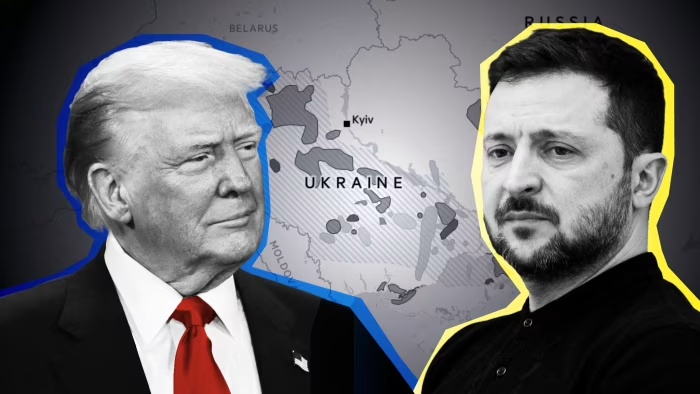Introduction
As the war in Ukraine enters its third year, a new front has emerged—one not of tanks or drones, but of contracts and critical resources. In early 2025, details surfaced of a sweeping US-Ukraine agreement granting the United States significant involvement in Ukraine’s natural resources sector. The deal, centered around lithium, rare earth minerals, gas, and agricultural land, has sparked intense debate about sovereignty, post-war recovery, and geopolitical leverage.
The Deal: A New Framework for Reconstruction
The agreement, officially dubbed the US-Ukraine Strategic Investment Framework, outlines the creation of a joint Reconstruction Investment Fund. According to leaked documents published by Reuters and Politico, Ukraine would pledge 50% of all future revenues from government-owned resource assets into the fund.
In exchange, the U.S. would co-finance the rebuilding of Ukraine’s destroyed infrastructure, particularly in mining, energy, and agriculture. American firms would be granted preferential access to develop Ukrainian natural resources under the fund’s supervision.
Notably, the deal includes:
- Joint management of the fund by U.S. and Ukrainian officials
- Provisions barring either side from selling its stake without mutual consent
- Clauses ensuring U.S. ownership rights “to the fullest extent permitted by U.S. law”
What’s at Stake: Critical Minerals and Food Power
Ukraine is home to some of Europe’s richest untapped deposits of lithium, titanium, and rare earths, all essential for clean tech, defense, and semiconductors. It also has massive natural gas fields and some of the world’s most fertile agricultural land.
For the U.S., the deal is strategic:
“The U.S. aims to reduce dependence on China for critical minerals. Ukraine is our next frontier,” said Senator Mark Simmons during a Senate defense committee briefing in February 2025.
By investing early, Washington secures future access to essential supply chains—especially as the global race for energy transition materials intensifies.
A Question of Sovereignty
While Kyiv sees the deal as a lifeline for reconstruction, critics—both in Ukraine and abroad—have raised concerns about sovereignty and ownership. According to The Nation and Euractiv, Ukrainian opposition lawmakers have warned that ceding half of future resource revenues to a foreign-administered fund could turn Ukraine into a “debt colony.”
President Zelensky’s office initially resisted the terms. Negotiators pushed back against a U.S. proposal for 50% ownership of Ukraine’s rare earths, eventually settling for the revenue-sharing model. Even so, the arrangement leaves Washington with long-term leverage over a key portion of Ukraine’s economic output.
Missing Security Guarantees
One of the most controversial aspects of the deal is what it doesn’t include: security guarantees. According to Reuters, the draft framework makes no mention of continued U.S. arms deliveries, intelligence support, or NATO integration pathways.
This omission has fueled criticism that the deal extracts economic concessions without offering equivalent defense assurances in return. As Ukrainian MP Natalia Humenyuk told Euractiv,
“We are being asked to give up part of our economic sovereignty without even a promise of military protection. That’s not partnership—it’s pressure.”
European Reactions
In Brussels, the deal has caused discomfort. EU officials, who have committed tens of billions to Ukraine’s reconstruction, fear that American companies will dominate key industries, leaving European firms behind.
“The EU must not fund Ukraine’s recovery only for the U.S. to own its resources,” an unnamed French diplomat told Le Monde. Germany’s economy ministry has called for “transparency and fair access” for European stakeholders.
The concern is not just economic but geopolitical. If Ukraine becomes heavily dependent on U.S. capital, its path to EU membership and integration may be complicated by transatlantic frictions.
Conclusion
The US-Ukraine resource deal represents a turning point in the geopolitics of reconstruction. For Washington, it’s a strategic play to secure raw materials and repay wartime aid. For Ukraine, it’s both a vital opportunity and a sovereignty dilemma. And for Europe, it’s a wake-up call to assert its role in rebuilding the continent’s eastern frontier.
The battle for Ukraine’s future is no longer just on the battlefield—it’s also in the boardrooms, contracts, and strategic alignments that will shape who benefits from the post-war order.



